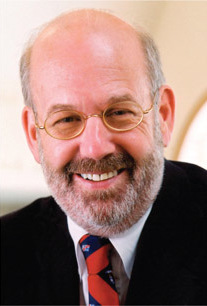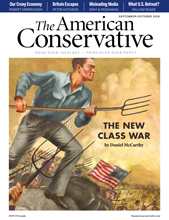Neoconservatism is a political movement that began in the United States and the United Kingdom during the 1960s during the Vietnam War among foreign policy hawks who became disenchanted with the increasingly pacifist Democratic Party and with the growing New Left and counterculture of the 1960s. Neoconservatives typically advocate the unilateral promotion of democracy and interventionism in international affairs, grounded in a militaristic and realist philosophy of "peace through strength." They are known for espousing opposition to communism and political radicalism.
Paleoconservatism is a political philosophy and strain of conservatism in the United States stressing American nationalism, Christian ethics, regionalism, and traditionalist conservatism. Paleoconservatism's concerns overlap with those of the Old Right that opposed the New Deal in the 1930s and 1940s as well as with paleolibertarianism and right-wing populism.
Social conservatism is a political philosophy and a variety of conservatism which places emphasis on traditional power structures over social pluralism. Social conservatives organize in favor of duty, traditional values and social institutions, such as traditional family structures, gender roles, sexual relations, national patriotism, and religious traditions. Social conservatism is usually skeptical of social change, instead tending to support the status quo concerning social issues.

Paul Edward Gottfried is an American paleoconservative political philosopher, historian, and writer. He is a former Professor of Humanities at Elizabethtown College in Pennsylvania. He is editor-in-chief of the paleoconservative magazine Chronicles. He is an associated scholar at the Mises Institute, a libertarian think tank, and the US correspondent of Nouvelle École, a Nouvelle Droite journal.

Llewellyn Harrison Rockwell Jr. is an American author, editor, and political consultant. A libertarian and a self-professed anarcho-capitalist, he founded and is the chairman of the Mises Institute, a non-profit promoting the Austrian School of economics.
Paleolibertarianism is a libertarian political activism strategy aimed at uniting libertarians and paleoconservatives. It was developed by American anarcho-capitalist theorists Murray Rothbard and Lew Rockwell in the American political context after the end of the Cold War. From 1989 to 1995, they sought to communicate libertarian notions of opposition to government intervention using messages accessible to working and middle-class people of the time, and combining libertarian free market views with the cultural conservatism of Paleoconservatism, while also opposing protectionism. The strategy also embraced the paleoconservative reverence for tradition and religion. This approach, usually identified as right-wing populism, was intended to radicalize citizens against the state. The name they chose for this style of activism evoked the roots of modern libertarianism, hence the prefix paleo. That founding movement was American classical liberalism, which shared the anti-war and anti-New Deal sentiments of the Old Right in the first half of the 20th century. Paleolibertarianism is generally seen as a right-wing ideology.

Chronicles is a U.S. monthly magazine published by the Charlemagne Institute and associated with paleoconservative views. Its full current name is Chronicles: A Magazine of American Culture. It was founded in 1977 by the Rockford Institute. Today, the journal is published by the successor organization Charlemagne Institute. Since 2021, Paul Gottfried is the editor-in-chief.

The American Conservative (TAC) is a magazine published by the American Ideas Institute which was founded in 2002. Originally published twice a month, it was reduced to monthly publication in August 2009, and since February 2013, it has been published once every two months.

Telos is a quarterly peer-reviewed academic journal that publishes articles on politics, philosophy, and critical theory, with a particular focus on contemporary political, social, and cultural issues.

The Occidental Quarterly is an American white nationalist magazine published by the Charles Martel Society. Its stated purpose is to defend "the cultural, ethnic, and racial interests of Western European peoples" and examine "contemporary political, social, and demographic trends that impact the posterity of Western Civilization".
Thomas Fleming is a traditionalist Catholic writer, former president of the Rockford Institute, and former editor of Chronicles: A Magazine of American Culture, a monthly paleoconservative political magazine.
In the United States, conservatism is based on a belief in limited government, individualism, traditionalism, republicanism, and limited federal governmental power in relation to U.S. states. Conservative and Christian media organizations, along with American conservative figures, are influential, and American conservatism is one of the majority political ideologies within the Republican Party.
The Old Right is an informal designation used for a branch of American conservatism that was most prominent from 1910 to the mid-1950s, but never became an organized movement. Most members were Republicans, although there was a conservative Democratic element based largely in the Southern United States. They are termed the "Old Right" to distinguish them from their New Right successors who came to prominence in the 1960s, 1970s and 1980s.
The "managerial state" is a concept used in critiquing modern procedural democracy. The concept is used largely, though not exclusively, in paleolibertarian, paleoconservative, and anarcho-capitalist critiques of late modern state power in Western democracies. Theorists Samuel T. Francis and Paul Gottfried, developing ideas inspired by the analytical framework of James Burnham, say this is an ongoing regime that remains in power, regardless of what political party holds a majority.
Neoconservatism and paleoconservatism are two major branches of the American conservative political movement. Representatives of each faction often argue that the other does not represent true conservatism. Disputed issues include immigration, trade, the United States Constitution, taxation, budget, business, the Federal Reserve, drug policy, foreign aid and the foreign policy of the United States.
The Rockford Institute was an American conservative think-tank associated with paleoconservatism, based in Rockford, Illinois. Founded in 1976, it ran the John Randolph Club and published the magazine Chronicles. In 2018 the Rockford Institute merged with the Charlemagne Institute, which became the new publisher of Chronicles. The Charlemagne Institute describes itself as "leading a cultural movement to defend and advance Western Civilization, the foundation of our American republic."
In American politics, fusionism is the philosophical and political combination or "fusion" of traditionalist and social conservatism with political and economic right-libertarianism. Fusionism combines "free markets, social conservatism, and a hawkish foreign policy". The philosophy is most closely associated with Frank Meyer.
Taki's Magazine, called Takimag for short, is an online magazine of politics and culture published by the Greek paleoconservative commentator and socialite Taki Theodoracopulos and edited by his daughter Mandolyna Theodoracopulos. It has published articles by far-right figures such as Gavin McInnes and the white supremacist Jared Taylor; the white supremacist Richard Spencer was an early Taki's editor.
Movement conservatism is a term used by political analysts to describe conservatives in the United States since the mid-20th century and the New Right. According to George H. Nash (2009) the movement comprises a coalition of five distinct impulses. From the mid-1930s to the 1960s, libertarians, traditionalists, and anti-communists made up this coalition, with the goal of fighting the liberals' New Deal. In the 1970s, two more impulses were added with the addition of neoconservatives and the religious right.
In the politics of the United States, the radical right is a political preference that leans towards ultraconservatism, white nationalism, white supremacy, or other far-right ideologies in a hierarchical structure which is paired with conspiratorial rhetoric alongside traditionalist and reactionary aspirations. The term was first used by social scientists in the 1950s regarding small groups such as the John Birch Society in the United States, and since then it has been applied to similar groups worldwide. The term "radical" was applied to the groups because they sought to make fundamental changes within institutions and remove persons and institutions that threatened their values or economic interests from political life.





